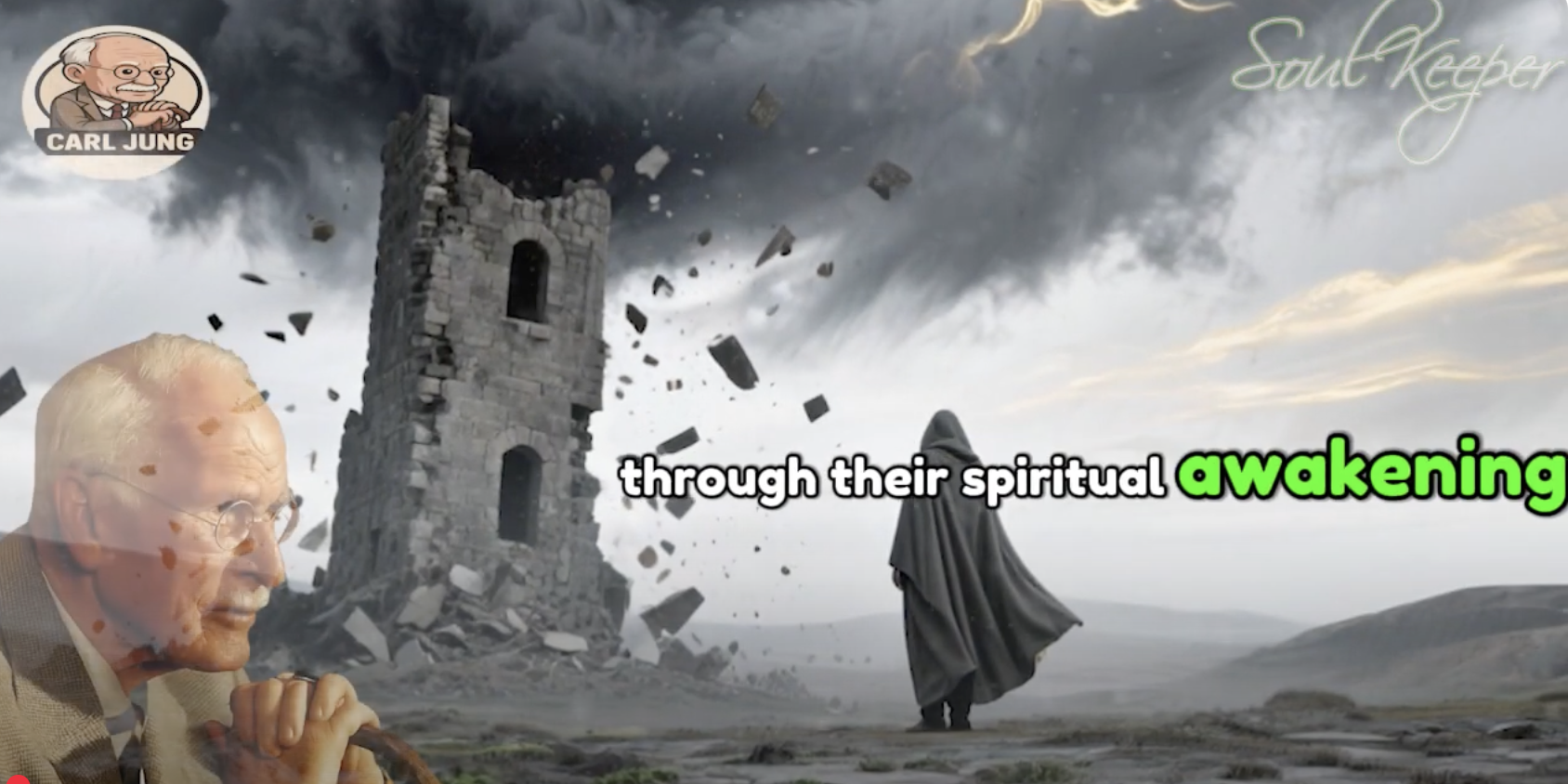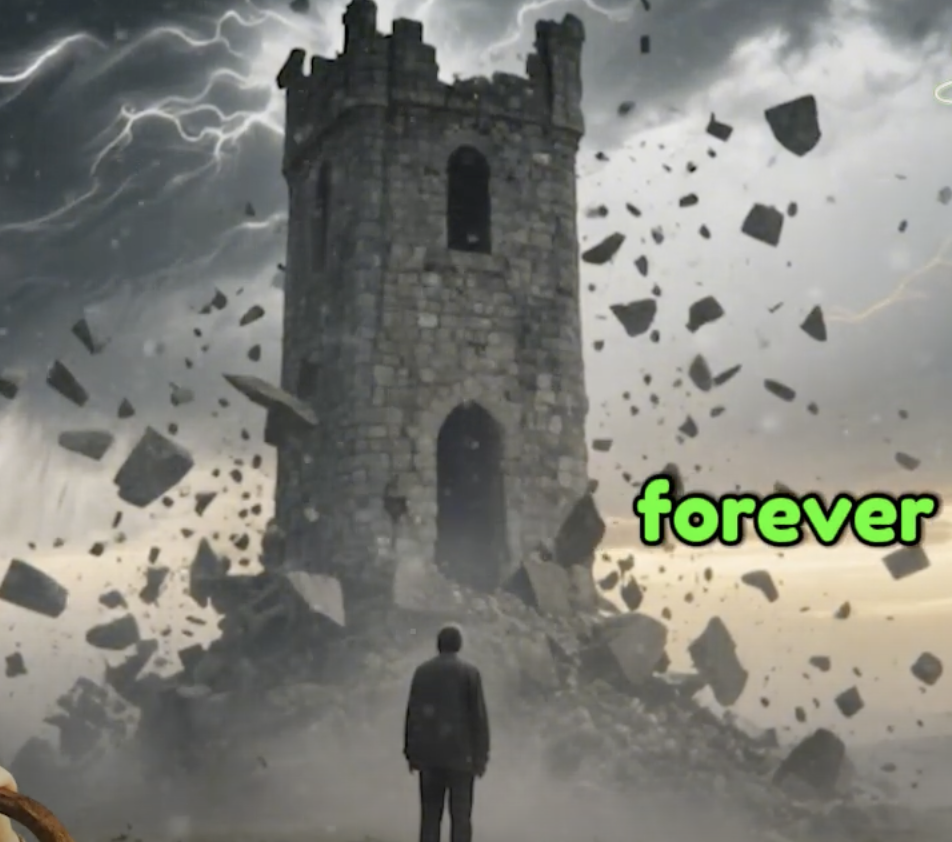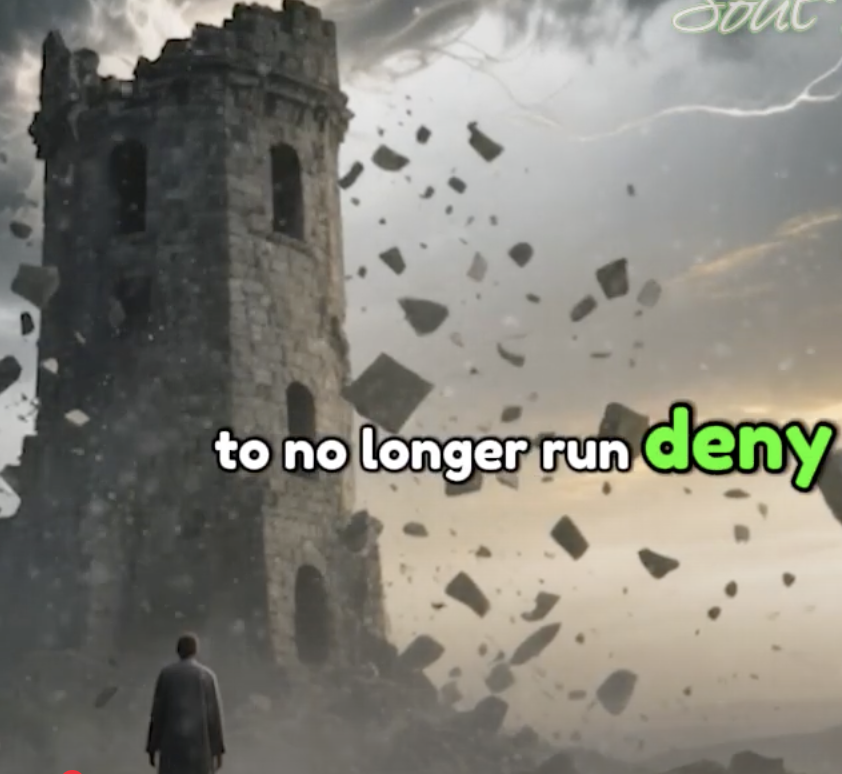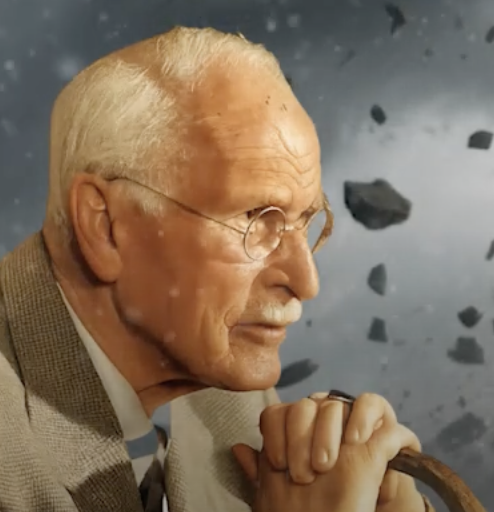I used to think spiritual awakening was a soft glow—a gentle realization, a burst of clarity. That myth unraveled the first time my carefully constructed identity buckled under pressure. It wasn’t some peaceful enlightenment but more like losing my footing on icy pavement: sudden, undignified, and disorienting. I’ll never forget the night I sat in silence so thick it roared, unsure if I was falling apart or falling into truth. If you’ve ever wondered what happens when the scaffolding comes down, when the roles, beliefs, and stories you built start to crumble, then maybe you’re in the right place. Let’s wander into the sacred mess together.
When the Self Collapses: Ego Death and Its Aftershocks

Ego death isn’t the serene transcendence people sometimes imagine. For me, it felt more like standing in the ruins of everything I’d built to survive. The roles I played, the beliefs I clung to, the stories I told myself just to feel safe—one by one, they started to dissolve. I was left raw and exposed, stripped of the scaffolding that had held me together for years.
Research shows that the stages of ego death often begin with a deep sense of existential questioning. It’s not just psychological pain; it’s as if the very ground beneath your feet disappears. The familiar world, the one shaped by my assumptions and defenses, started to unravel. I remember thinking, “Awakening ain't no gentle invitation. It don’t greet you with soft light. It hits like a storm tearing apart the scaffolding.” That line stuck with me because it felt so true.
The psychological aspects of awakening can be brutal. There’s a silence that screams louder than any noise. Emotional groundlessness becomes the new normal. I’d look in the mirror and barely recognize the person staring back. The masks I wore for so long—sometimes out of habit, sometimes out of fear—began to slip away. Underneath, I found someone I didn’t know, and honestly, didn’t always want to meet.
Carl Jung called this descent into the unconscious “individuation.” He saw it as a necessary unraveling before true wholeness could surface. But in the thick of it, that doesn’t feel like wisdom. It just feels like loss. I get why so many people turn away at this stage. The pain of ego dissolution can be overwhelming. Most folks don’t make it through their spiritual awakening, not because their bodies give out, but because something far more fragile snaps—the identity they’ve spent years, even decades, defending.
Navigating identity collapse isn’t about heroics. Sometimes, it’s about survival. Many people, myself included, have tried to numb the feeling or distract themselves. It’s not a failure; it’s just very human. The world often praises spiritual awakening as a blissful arrival, but what it rarely shows is the chaos before the clarity. The truth is, the stages of ego death are messy. There’s no map, no clear path. Just the slow, sometimes painful, disintegration of everything you thought was true.
Awakening ain't no gentle invitation. It don’t greet you with soft light. It hits like a storm tearing apart the scaffolding.
If you’re in the middle of this storm, you’re not alone. The process of ego death and ego dissolution is disorienting, and the psychological aspects of awakening can leave you feeling lost. But as research indicates, this collapse is often the gateway to self-realization or spiritual enlightenment. The journey is rarely linear, and the pain is real—but so is the possibility of discovering what lies beneath the ruins.
Lost and Unmoored: The Chaos Before the Clarity

There’s a truth about spiritual awakening that rarely gets spoken out loud. It’s not about becoming someone new. It’s about meeting what you’ve always been, beneath all the noise. But the price of meeting that truth? Sometimes, it’s everything that once gave you comfort—routine, old relationships, even those dreams you thought defined you. When the familiar starts to feel empty and irrelevant, the ground beneath your feet can vanish. This is where the Dark Night of the Soul begins.
Research shows that the Dark Night of the Soul is a stage marked by suffering, confusion, and the need to confront the shadow self. You look around and, on the surface, nothing much has changed. But inside, the invisible architecture of meaning that held your life together starts to crumble. The roles you played, the beliefs you clung to, even the sacred icons—suddenly they feel hollow, like their purpose expired without warning. It’s not a mistake. It’s the old self giving way, making space for something deeper.
Jung described this as a time when purpose falls apart and the ego clings desperately to survival. The silence that follows ego death screams louder than any noise. You might feel pain, disorientation, even despair. These aren’t failures. They’re signals. They tell you the old scaffolding—those beliefs and routines that once protected you—can’t hold you anymore. The urge to numb out or distract yourself is strong. Many do. But if you stay, if you face the emptiness, something else starts to emerge.
The silence that screams louder than any noise, the slow disintegration of the masks you wore for so long you forgot the face beneath them.
In this emotional groundlessness, shadow work becomes not just helpful, but essential. The shadow isn’t an enemy. It’s a forgotten guide, holding the exiled and unloved parts of yourself. Facing inner pain—those memories, regrets, and fears you pushed away—becomes the work. Studies indicate that integrating the shadow self is crucial for authentic spiritual growth. This is the psychological aspect of awakening that most folks don’t talk about. The collapse of meaning isn’t punishment. It’s the beginning of truth.
There’s a point where the old frameworks just can’t contain you anymore. You start to feel like a stranger in your own life, going through motions that now feel hollow. This is the rupture, the existential ache, the invitation to dive deeper. You’re no longer satisfied with surface meanings or secondhand beliefs. The collapse of the old is not the end of meaning—it’s the start of real awareness. Though it feels like a crisis, it’s the soul’s quiet revolt against a life that no longer reflects its depth.
In the sacred dark, something ancient stirs. Not new, but long forgotten. It doesn’t announce itself with fanfare. It whispers through the emptiness, in the stillness, in the ache that lingers where comfort used to be. This is the heart of emotional groundlessness in awakening—the space where clarity is born from chaos.
Shadowboxing: Meeting the Forgotten Self

Shadow work isn’t just a concept I read about in books or hear about in workshops. It’s something I meet in the mess of daily life—when I get triggered, when I feel defensive, or when irrational fears seem to take over. The shadow doesn’t arrive sweetly.
The shadow don’t arrive sweetly. It arrives through your triggers, your defensiveness, and your sabotage. It arrives in jealousy, in comparison, in fear of abandonment.
Sometimes, it shows up right when I’m close to what I want, then I find myself pushing it away without knowing why.
For a long time, I thought healing meant fixing these parts of myself. I tried to silence the discomfort, patch over the pain, or distract myself with positivity. But research shows that true healing through shadow work isn’t about fixing—it’s about listening. It’s about attending to the parts of me that feel exiled, the parts that never got the love or presence they needed. When I finally turn toward these wounded places with openness, something ancient begins to heal. The part of me that was never loved finally receives the presence it always needed.
This is where inner child healing becomes quietly radical. It’s not about re-parenting with conditions or expectations. It’s about offering presence without condition, just sitting with whatever comes up. Studies indicate that this kind of presence is essential for self-compassion and wholeness. The role of presence in healing can’t be overstated; it’s the foundation of authenticity in spiritual growth.
Spiritual awakening, I’ve learned, doesn’t deliver me into peace. It initiates me into presence. It’s not the end of suffering, but the moment I’m asked to sit face to face with it. I can’t run, deny, or disguise what hurts. Awakening isn’t a gentle light that soothes me—it’s a fire that strips me bare. It asks for my grief, my rage, my silence, all without filters or escape. There’s no guarantee of who I’ll become. It’s the death of the familiar self, even as I keep breathing. Everything false collapses, and in the ruins, I’m asked to surrender—not because I’m strong, but because I’m ready.
The ego, I realize, was designed to protect me, not to awaken me. It survives by controlling the narrative, maintaining appearances, and suppressing discomfort. But the soul isn’t here to protect what’s temporary. It’s here to reveal what’s eternal. That revelation only begins through unraveling. I have to take off the armor I thought kept me safe, dismantle the stories that kept me small, and let my old identity fall away. In the stillness that follows, something ancient stirs—a silent ache for wholeness, not just comfort.
Most people, including myself at times, try to bury this ache beneath busyness or drown it in distractions. But once I’ve glimpsed my own soul, I can’t go back to skimming the surface of life. I find myself in the in-between—not who I was, not yet who I’m becoming. This liminal space is terrifying, but it’s also holy ground. In that stillness, my shadow appears—not to torment me, but to ask if I’m finally ready to meet myself completely.
I was taught to flee from pain, to fix it quickly, or hide it behind spiritual slogans. But waking up isn’t about running away. It’s a reckoning. It’s the slow turning of my gaze toward the wound—not with judgment, but with presence. I’m learning to sit with what aches, to listen, and to treat my pain as a sacred teacher. That’s where the real work of authenticity in spiritual growth begins.
Awakening in the Ashes: Living Beyond the Collapse

When I first heard that spiritual awakening was about the embodiment of true self, I imagined it would feel like an upgrade—like stepping into a brighter, more peaceful version of life. But the reality is far less glamorous. As research shows, awakening is not an improvement of the old self; it’s a dismantling. The process strips away everything I thought I needed: identities, relationships, even dreams that once defined me. “Awakening don’t upgrade your life, it dismantles it. It burns the scaffolding of illusion and waits patiently among the ashes to see if you’re brave enough to rebuild not from memory but from truth.” That quote rings true in every corner of my experience.
The spiritual awakening journey is not a gentle one. I lost things. I lost people. I lost the comfort of certainty. The pain of letting go was sharp and relentless. Trying to carry my old self into new consciousness only led to more suffering. The familiar felt safer, even if it was painful, than the unknown freedom waiting on the other side. Most people, I’ve noticed, retreat to what they know because facing the wilderness within is terrifying. The wilderness asks me to feel without numbing, to see my shadow without flinching. It’s not my light that appears first, but the parts of me I tried to hide—my wounds, my fears, my need for control.
This is where the transformative power of surrender comes in. The shadow doesn’t arrive sweetly. It shows up in my triggers, my defensiveness, my jealousy and fear. It’s the part of me that learned to survive by withdrawing, manipulating, or pleasing. True awakening means welcoming this part with compassion, not fear. Not to fix it, but to listen. When I finally turn toward my pain, something ancient begins to heal. I start to remember who I was before the world taught me to forget.
Confronting illusions in spirituality is messy. Awakening doesn’t deliver peace; it initiates presence. I’m asked to sit with my suffering, to stop running, denying, or disguising it. It’s a fire that strips me bare, demanding my grief, my rage, my silence—without escape. I have to let go of every mask, every story that kept me small. In the stillness that follows, I don’t find certainty. I find a silent ache for something real: more wholeness, more truth, more aliveness.
This is the heart of authenticity in spiritual growth. I learn that pain is not my enemy but my guide. Each emotion I once rejected holds a piece of my wholeness. The longer I stay with them, the more compassion arises—not just for others, but for myself. The illusion of perfection fades. I stop seeking healing as a way to be fixed and start seeking truth, raw and unapologetic.
In the end, awakening is not about becoming flawless. It’s about becoming honest—imperfect, messy, and fully human. Presence, not perfection, becomes my new goal. Sometimes, the bravest thing I can do is simply remain. And in that sacred act of staying, I finally come home to myself.



